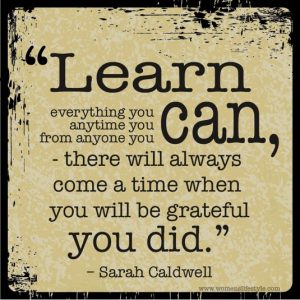Take Charge
Competency Building and the Heroic Journey
The challenge of developing competencies is a good example of the basic parts of the heroic journey, particularly the three types of test encountered on the journey and taking the initiative to be the author of the experience vs. just letting life happen to you.
The Three Types of Test on a Heroic Journey
- Letting Go of Old Ways
- Discovering & Mastering New Ways
- Dealing With “Inbetweenity”
- Let Go of Old Ways
The central “old way” that you must let go of as a teenager is that of being dependent – relying on the competencies of others to take care of your needs. This is harder than it sounds because it is nice to be taken care of.
As a child, you didn’t need very many competencies to be OK. Competencies could be developed slowly, often in fun ways and there were not a lot of consequences for not developing competencies.As a teenager, the idea is to become increasingly independent – to be doing more “caring for” than “being cared for.” The “caring for” can be for yourself or for others. This is a big shift and a lot of competencies come into play. And they come fast and furious. Letting go of relying on the competencies of others is a tough challenge.
If you don’t let go of old ways, you won’t have the opening for discovering the new ways. On the other hand, building new competencies make it a lot easier to let go of the old ways.
- Discover and Master New Ways
This is obviously a big test because there are a lot of competencies to build, often at the same time. A surprisingly important part of this test is simply deciding which competencies you want to build and how you will go about building them.Then it is a matter of following through and “holding the course” until you have developed the levels of competency you want. One of the sneaky parts of this test is determining where and how you can develop competencies that aren’t built into your school experience. - Deal with “Inbetweenity”
“Inbetweenity” is a tough test for the teen years because there is so much of it in so many areas and because it can last for a long time.It’s particularly tough around 14-16 years of age because you have already let go of a lot of aspects of being a child, but haven’t had time to make it to young adulthood in lots of areas.There are lots of competencies to be built and they take time, so that sense of not being there yet – or in-between – will be a frequent companion.That can be frustrating, but manage the frustration or feeling of being “unfinished” because that’s where you are supposed to be.As you develop competencies in more and more areas, those feelings of “inbetweenity” fade.
The more competencies you build, the less the sense of being in-between will affect you. Building competencies moves you toward your new identity as a young man or woman.
Be the Author – The Heart of the Heroic Journey
Beyond School
This challenge of building a dozen different types of competencies falls to you – although you will have a lot of help. Some of these competencies are taught in school – classes, teams, clubs. Some are taught in faith communities or families. Many are not. Your challenge is to look beyond what is being presented to you and identify where you can go to develop more of these skills – be the author.
For example, with the internet you don’t need to wait for courses to start mastering these skills. There are resources online that can at least give you an overview of the skills and how to pursue them. In most communities, there are also workshops and courses and seminars that are available. Most of them are not aimed directly at teenagers, but many are appropriate and classes of adults really like having teenagers involved because of the different perspective and energy that you bring. You would be welcomed in the vast majority of cases.
You have gotten used to responding to what school throws at you, but as teenagers you need to begin taking the initiative for the competencies you need to develop. And you need to manage your school experience vs. letting it manage you – getting the most out of your school experiences.
